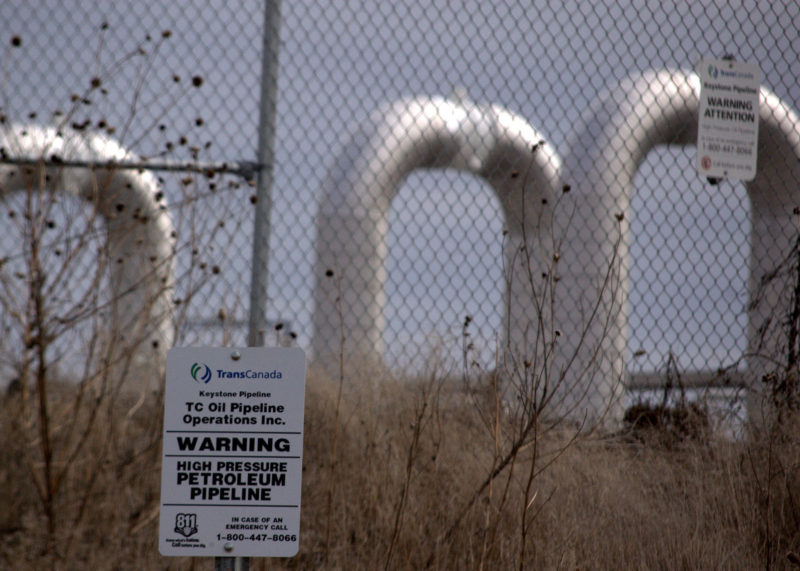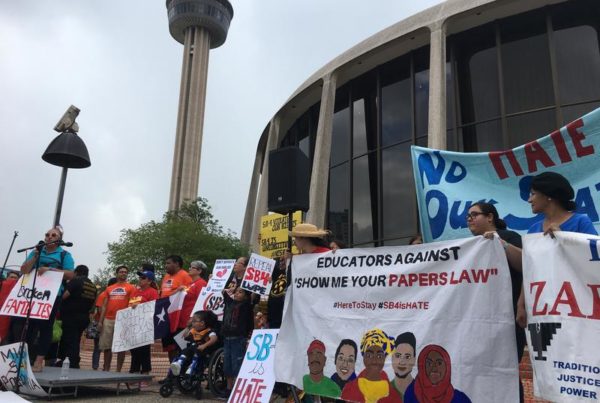Keystone XL, the controversial pipeline that after much delay and protest got the green light from President Donald Trump earlier this year, has run into a roadblock yet again. The $3 billion project can’t find oil companies to serve on its board and interest in the pipeline is now waning. Five years after Keystone XL’s introduction Chris Matthews, a reporter for The Wall Street Journal, says the market has changed.
“There does not seem to be demand among customers who would be either refiners receiving oil from the Canadian sands,” Matthews says, “or the producers in Canada who would be shipping it.”
Given the activity in the Canadian sands region located mainly in Alberta, Keystone XL was expected to be a jobs creator. Among many factors that have prevented the project from progressing, Matthews primarily cites the “U.S. shale revolution.”
“Using horizontal drilling and hydraulic fracturing all over the country – places like the Permian – has unleashed huge amounts of oil,” Matthews says.
The result was a big price drop in oil on the global markets, to around $45 a barrel, he says. When Keystone XL was first proposed, oil was selling for almost three times that amount. So, for Canadian producers, there is no economic reason to use the pipeline.
“On the flip side are the refiners,” Matthews says. “And what the shale revolution has done for them is provided them with another source of oil.”
As the delays went on at Keystone XL, refineries were reconfigured to handle shale oil, which is a lighter oil than Canadian sands oil. The light crude can be imported from countries like Venezuela and Mexico.
Although portions of Keystone XL have already been built, the bulk of the project has yet to be completed, says Matthews.
“They actually bought the pipes,” he says. “They’re sitting, much of it in a storage field in Dakota, I guess rusting.”
TransCanada CEO Russell Girling remains committed to completing Keystone XL, Matthews says, in anticipation of long-term demand by refiners. Girling was on hand in the Oval Office when President Trump signed his executive order approving the project. It’s transformed into “a symbolic import” that will be difficult for Girling to walk away from, Matthews says.
Written by Louise Rodriguez.


















